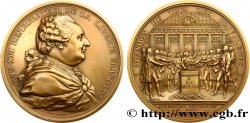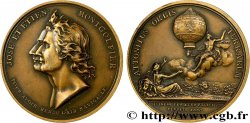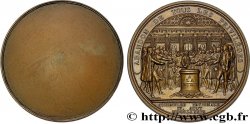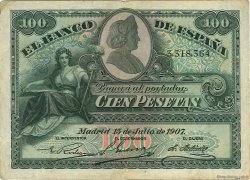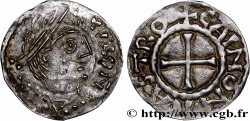Live auction - fme_968850 - LOUIS XVI Médaille, Jacques Necker
Devi Sign-in ed essere un offerente approvato fare un'offerta, Login per fare offerte. Conti sono soggetti ad approvazione e di approvazione sono raggiunti entro 48 ore. Non aspettare fino al giorno di una vendita si chiude per registrarti.Confermando la tua offerta su questo oggetto ti impegni ad un contratto legalmente vincolante per l'acquisto di questo prodotto e fare clic su «offerta» costituisce accettazione dei termini di utilizzo de live auctions cgb.fr.
Offerta deve essere collocato in euro gli importi interi vendita only.The si chiuderà al momento sulla descrizione dell'oggetto, eventuali offerte pervenute al sito dopo l'orario di chiusura non verranno eseguite. Volte transmition possono variare e le offerte potrebbero essere respinto se si attende per gli ultimi secondi. Per ulteriori informazioni ckeck le FAQ Live auction.
Le offerte vincenti saranno sottomesse ai 18% per spese di compartecipazione alla vendita.
Le offerte vincenti saranno sottomesse ai 18% per spese di compartecipazione alla vendita.
| Valutazione : | 100 € |
| Prezzo : | no offerta |
| Offerta maxima : | no offerta |
| Data di fine vendita : | 19 novembre 2024 14:50:34 |
Tipo : Médaille, Jacques Necker
Data: 1789
Metallo : rame
Diametro : 41,50 mm
Asse di coniazione : 12 h.
Incisore DUVIVIER Benjamin (1730-1819)
Peso : 32,28 g.
Orlo : lisse
Marchio : sans poinçon
Commenti sullo stato di conservazione:
Patine marron hétérogène avec des taches d’oxydation. Trou percé à 12 heures et tranche réparée sur la tranche à 12 heures. Faible usure
Diritto
Titolatura diritto : JACQUES NECKER GENEVOIS - NÉ EN OCTOBRE - MDCCXXXII.
Descrittivo diritto : Buste à gauche de Jacques Necker, signé sur le tranché du bras : INSCIUM S. DU VIVIER.
Rovescio
Titolatura rovescio : VOEU PUBLIC SATISFAIT // ELEVE / AU MINISTÈRE / DES FINANCES / EN OCTOBRE 1776 / RAPPELÉ EN AOUST 1788 / ET POUR LA IIIME FOIS / EN JUILLET 1789 // OFFERT À LA NATION / PAR B. DUVIVIER.
Descrittivo rovescio : Légende circulaire et en 7 lignes dans un couronne végétale.
Commento
Jacques Necker (30 septembre 1732 à Genève - 9 avril 1804 à Coppet en Suisse) est un financier et homme politique genevois, ministre des Finances de Louis XVI. Il est le père de Madame de Staël.
Après avoir fait fortune comme banquier à Paris et à la suite du succès de ses essais en matière de politique économique, il est nommé par Louis XVI directeur général du Trésor royal en 1776, puis des Finances. Il modernise alors l’organisation économique du royaume en s’opposant au libéralisme de ses prédécesseurs. Renvoyé en mai 1781, peu avant les grandes spéculations boursières sous Louis XVI, il est rappelé en août 1788 avec le titre de ministre d’État du fait du soutien indéfectible de l’opinion publique, et convoque les États généraux en obtenant le doublement du tiers état. Renvoyé par Louis XVI le 8 juillet 1789 pour avoir été absent lors de la séance royale du 23 juin 1789, il retrouve sa fonction après la prise de la Bastille pour apaiser les révolutionnaires. Confronté à l'opposition de l'Assemblée nationale, il démissionne de nouveau en septembre 1790 et rédige une critique sévère du nouveau principe d'égalité.
Jacques Necker (September 30, 1732 in Geneva - April 9, 1804 in Coppet, Switzerland) was a Genevan financier and politician, Minister of Finance under Louis XVI. He was the father of Madame de Staël. After making his fortune as a banker in Paris and following the success of his essays on economic policy, he was appointed by Louis XVI as Director General of the Royal Treasury in 1776, then Director of Finance. He then modernized the economic organization of the kingdom by opposing the liberalism of his predecessors. Dismissed in May 1781, shortly before the great stock market speculations under Louis XVI, he was recalled in August 1788 with the title of Minister of State due to the unwavering support of public opinion, and convened the Estates General, obtaining the doubling of the Third Estate. Dismissed by Louis XVI on July 8, 1789 for having been absent from the royal session of June 23, 1789, he returned to his post after the storming of the Bastille to appease the revolutionaries. Faced with opposition from the National Assembly, he resigned again in September 1790 and wrote a severe critique of the new principle of equality.
Après avoir fait fortune comme banquier à Paris et à la suite du succès de ses essais en matière de politique économique, il est nommé par Louis XVI directeur général du Trésor royal en 1776, puis des Finances. Il modernise alors l’organisation économique du royaume en s’opposant au libéralisme de ses prédécesseurs. Renvoyé en mai 1781, peu avant les grandes spéculations boursières sous Louis XVI, il est rappelé en août 1788 avec le titre de ministre d’État du fait du soutien indéfectible de l’opinion publique, et convoque les États généraux en obtenant le doublement du tiers état. Renvoyé par Louis XVI le 8 juillet 1789 pour avoir été absent lors de la séance royale du 23 juin 1789, il retrouve sa fonction après la prise de la Bastille pour apaiser les révolutionnaires. Confronté à l'opposition de l'Assemblée nationale, il démissionne de nouveau en septembre 1790 et rédige une critique sévère du nouveau principe d'égalité.
Jacques Necker (September 30, 1732 in Geneva - April 9, 1804 in Coppet, Switzerland) was a Genevan financier and politician, Minister of Finance under Louis XVI. He was the father of Madame de Staël. After making his fortune as a banker in Paris and following the success of his essays on economic policy, he was appointed by Louis XVI as Director General of the Royal Treasury in 1776, then Director of Finance. He then modernized the economic organization of the kingdom by opposing the liberalism of his predecessors. Dismissed in May 1781, shortly before the great stock market speculations under Louis XVI, he was recalled in August 1788 with the title of Minister of State due to the unwavering support of public opinion, and convened the Estates General, obtaining the doubling of the Third Estate. Dismissed by Louis XVI on July 8, 1789 for having been absent from the royal session of June 23, 1789, he returned to his post after the storming of the Bastille to appease the revolutionaries. Faced with opposition from the National Assembly, he resigned again in September 1790 and wrote a severe critique of the new principle of equality.








 Segnalare un errore
Segnalare un errore Stampate la pagina
Stampate la pagina Condividi mia selezione
Condividi mia selezione Fai una domanda
Fai una domanda Consegnare / vendere
Consegnare / vendere
 Descrittivo
Descrittivo
